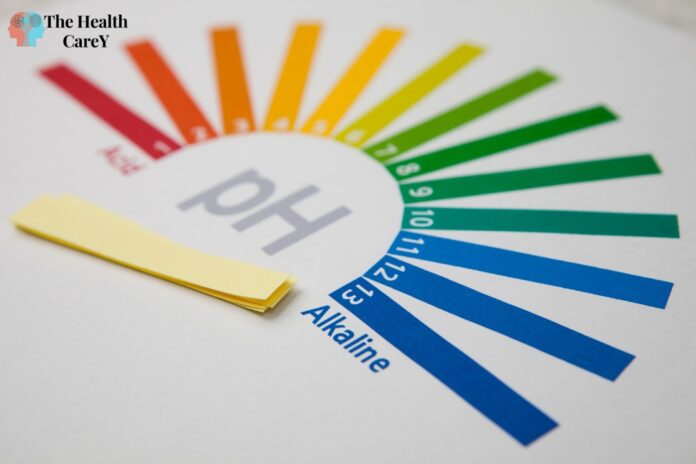If you have recently received the results of a blood test, you may have noticed a value for alkaline phosphatase (ALP). This is an enzyme that is found in various tissues throughout the body, including the liver, bone, and intestine. While ALP is important for many bodily functions, it is possible for the levels to become elevated, indicating a potential health issue. In this article, you will learn about what level of alkaline phosphatase is considered dangerous and what it may indicate about your health.
First, it is important to understand what a normal range for ALP is. The typical range for adults is between 20 and 140 units per liter (U/L), though this can vary depending on age and gender. If your ALP levels fall within this range, there is likely no cause for concern. However, if your levels are higher than this, it may be an indication of an underlying health issue.
So, what level of alkaline phosphatase is considered dangerous? Generally, levels above 140 U/L are considered to be elevated and may warrant further investigation. However, it is important to note that ALP levels can vary depending on a number of factors, including age, gender, and certain medications. Your healthcare provider will be able to provide you with more information about what your specific ALP levels may indicate.
Understanding Alkaline Phosphatase
Alkaline phosphatase (ALP) is an enzyme found in various tissues throughout the body, including the liver, bones, and intestines. It plays a crucial role in several physiological processes, such as bone formation and liver function.
Measuring the level of ALP in the blood can help diagnose certain medical conditions, such as liver disease, bone disorders, and certain types of cancer. However, the normal range of ALP can vary depending on age, sex, and overall health status.
For adults, the normal range of ALP is typically between 20 and 140 IU/L (international units per liter). However, levels may be higher in children and adolescents due to the active growth of bones and other tissues.
If your ALP levels are higher than the normal range, it may indicate an underlying medical condition. However, it is important to note that a high ALP level alone does not necessarily mean you have a serious health problem. Further testing and evaluation by a healthcare professional is necessary to determine the underlying cause and appropriate treatment.
In some cases, a very high level of ALP may indicate a more serious condition, such as liver disease or bone cancer. However, it is important to avoid making assumptions or jumping to conclusions based on a single test result. Your healthcare provider will take into account other factors, such as your medical history and other test results, to make an accurate diagnosis.
In summary, understanding the role of ALP in the body and the normal range of levels can help you better understand your health and potential medical conditions. If you have concerns about your ALP levels, speak with your healthcare provider for further evaluation and guidance.
Normal Alkaline Phosphatase Levels
Alkaline phosphatase (ALP) is an enzyme found in various tissues in the body, including the liver, bones, and intestines. The normal range of ALP levels in the blood varies depending on age and gender. In general, the normal range for adults is between 20 and 130 U/L.
ALP levels can be affected by various factors, including pregnancy, certain medications, and liver or bone diseases. Therefore, it is important to interpret ALP levels in conjunction with other liver function tests and clinical symptoms.
Here are some examples of normal ALP levels based on age and gender:
- Adult males: 20-140 U/L
- Adult females: 20-130 U/L
- Children (age 1-3 years): 104-345 U/L
- Children (age 3-13 years): 69-360 U/L
- Adolescents (age 13-17 years): 92-336 U/L
It is important to note that the normal range may vary slightly between different laboratories, so it is always best to consult with your healthcare provider to interpret your individual results.
In general, a mild increase in ALP levels may not be a cause for concern, but a significant and persistent increase may indicate liver or bone disease. Your healthcare provider may recommend further testing to determine the underlying cause of elevated ALP levels.
Overall, it is important to maintain regular check-ups with your healthcare provider to monitor your ALP levels and overall health.
What Level of Alkaline Phosphatase is Dangerous
Alkaline phosphatase (ALP) is an enzyme found in various tissues throughout the body, including the liver, bones, and intestines. Elevated levels of ALP in the blood can indicate a problem with one of these tissues. However, not all elevated levels of ALP are dangerous.
The normal range of ALP varies depending on age and gender. In general, the normal range for adults is between 20 and 140 IU/L (international units per liter). Anything above this range may indicate a problem.
The level of ALP that is considered dangerous depends on the underlying condition causing the elevation. For example, in liver disease, levels above 2-3 times the upper limit of normal (ULN) can indicate severe liver damage. In bone disease, levels above 10 times the ULN may indicate bone cancer or other serious conditions.
It is important to note that ALP levels can also be elevated in pregnant women and children, and may not necessarily indicate a problem. In these cases, further testing may be needed to determine the cause of the elevated levels.
If you have elevated levels of ALP, it is important to speak with your healthcare provider to determine the underlying cause and appropriate treatment. Your provider may order additional tests, such as liver function tests or bone scans, to help diagnose the problem.
In summary, the level of ALP that is considered dangerous depends on the underlying condition causing the elevation. Elevated levels of ALP should be evaluated by a healthcare provider to determine the cause and appropriate treatment.
Factors Influencing Alkaline Phosphatase Levels
Alkaline phosphatase (ALP) is an enzyme that is present in various tissues throughout the body, including the liver, bones, and intestines. Elevated levels of ALP can indicate a range of health issues, including liver disease, bone disorders, and pregnancy complications. Several factors can influence ALP levels, including:
Age and Sex
ALP levels can vary based on a person’s age and sex. In general, ALP levels tend to be higher in children and adolescents due to the rapid growth and development of bones during this time. ALP levels also tend to be higher in males than females, particularly during puberty.
Pregnancy
Pregnancy can cause a temporary increase in ALP levels, particularly in the third trimester. This is due to the increased production of ALP by the placenta, as well as the growth and development of the fetal bones.
Diet and Lifestyle
Certain dietary and lifestyle factors can also influence ALP levels. For example, a diet high in calcium and vitamin D can help maintain healthy bone growth and development, leading to lower ALP levels. Conversely, a diet low in these nutrients can contribute to elevated ALP levels. Heavy alcohol consumption and smoking can also increase ALP levels due to their negative effects on liver function.
It is important to note that ALP levels can also be influenced by certain medications and medical conditions, such as liver disease and bone disorders. If you are concerned about your ALP levels, it is important to speak with your healthcare provider for proper evaluation and diagnosis.
High Alkaline Phosphatase Levels
When your alkaline phosphatase levels are higher than normal, it may indicate an underlying health condition. Here are some potential causes of high alkaline phosphatase levels:
Liver Diseases
Liver diseases such as hepatitis, cirrhosis, and liver cancer can cause elevated alkaline phosphatase levels. This is because alkaline phosphatase is produced in the liver and released into the bloodstream when liver cells are damaged.
Bone Disorders
Bone disorders such as Paget’s disease, osteomalacia, and bone cancer can also cause high alkaline phosphatase levels. This is because alkaline phosphatase is also produced by bone cells and released into the bloodstream when bone tissue is being formed or repaired.
Other Health Conditions
Other health conditions such as hyperparathyroidism, hypothyroidism, and celiac disease can also cause elevated alkaline phosphatase levels. In some cases, certain medications or supplements can also cause high alkaline phosphatase levels.
It is important to note that high alkaline phosphatase levels alone are not enough to diagnose a specific health condition. Additional tests and evaluations may be needed to determine the underlying cause. If you are concerned about your alkaline phosphatase levels, you should speak with your healthcare provider.
Symptoms of Elevated Alkaline Phosphatase
When the level of alkaline phosphatase in your blood is higher than normal, it could indicate an underlying medical condition. However, in most cases, there are no visible symptoms of elevated alkaline phosphatase levels.
If you do experience symptoms, they may include:
- Fatigue
- Weakness
- Nausea
- Vomiting
- Loss of appetite
- Abdominal pain
- Jaundice
These symptoms are not specific to elevated alkaline phosphatase levels and can be caused by a variety of medical conditions. Therefore, it is important to see a healthcare provider for proper diagnosis and treatment.
In rare cases, extremely high levels of alkaline phosphatase can cause bone and joint pain, fractures, and deformities. This is often seen in individuals with a condition called Paget’s disease.
If you are experiencing any of the above symptoms or have concerns about your alkaline phosphatase levels, it is important to speak with your healthcare provider to determine the underlying cause and appropriate treatment plan.
Diagnosing Alkaline Phosphatase Levels
When it comes to diagnosing the level of alkaline phosphatase in your body, your doctor will likely order a blood test. This test measures the amount of alkaline phosphatase in your blood and can help your doctor determine if your levels are within a healthy range.
It’s important to note that the normal range for alkaline phosphatase can vary depending on factors such as age, sex, and overall health. For example, children and adolescents tend to have higher levels of alkaline phosphatase due to their growing bones. Pregnant women may also have higher levels due to the growth of the placenta.
If your alkaline phosphatase levels are found to be elevated, your doctor may order additional tests to determine the underlying cause. This could include tests to check your liver function, bone health, or to screen for certain diseases.
It’s important to follow your doctor’s recommendations for further testing and treatment, as elevated levels of alkaline phosphatase can indicate a serious underlying condition. However, it’s also important to remember that in some cases, elevated levels may not necessarily be a cause for concern and may simply require monitoring over time.
Treatment for High Alkaline Phosphatase
If you have been diagnosed with high alkaline phosphatase levels, your doctor will recommend treatment based on the underlying cause. Treatment options may include:
Medications
If the cause of high alkaline phosphatase is related to liver or bone disease, your doctor may prescribe medications to treat the underlying condition. For example, if you have liver disease, your doctor may prescribe medications to improve liver function and reduce inflammation.
Dietary Changes
In some cases, dietary changes can help reduce alkaline phosphatase levels. Your doctor may recommend a diet that is low in fat, high in fiber, and rich in fruits and vegetables. This can help improve liver function and reduce inflammation.
Surgery
If you have a blockage in your bile ducts or gallbladder, surgery may be necessary to remove the blockage and reduce alkaline phosphatase levels.
Lifestyle Changes
If high alkaline phosphatase levels are related to lifestyle factors, such as excessive alcohol consumption or smoking, your doctor may recommend lifestyle changes to improve your overall health and reduce inflammation.
It is important to follow your doctor’s recommendations for treatment to reduce the risk of complications associated with high alkaline phosphatase levels.
Frequently Asked Questions
What are the potential health implications of elevated alkaline phosphatase levels?
Elevated levels of alkaline phosphatase may indicate an underlying health condition, such as liver or bone disease. High levels of alkaline phosphatase can also be a side effect of certain medications. It is important to consult with your healthcare provider to determine the underlying cause of elevated alkaline phosphatase levels.
How are high alkaline phosphatase levels treated?
Treatment for high alkaline phosphatase levels depends on the underlying cause. If the high levels are due to liver or bone disease, treatment may involve medications or lifestyle changes. If the high levels are a side effect of medication, your healthcare provider may adjust your dosage or switch you to a different medication.
What symptoms might indicate an increase in alkaline phosphatase?
Elevated levels of alkaline phosphatase may not cause any symptoms on their own. However, symptoms of the underlying condition causing the high levels may be present. These can include abdominal pain, fatigue, and bone pain.
At what levels of alkaline phosphatase should pregnant women be concerned?
Pregnant women may have slightly higher levels of alkaline phosphatase due to the growth of the placenta. However, levels that are significantly higher than the normal range may indicate a problem with the liver or gallbladder. It is important for pregnant women to consult with their healthcare provider if they have concerns about their alkaline phosphatase levels.
What constitutes a high alkaline phosphatase reading, and when is it considered alarming?
The normal range of alkaline phosphatase varies depending on age and sex. In general, levels above the normal range are considered high. However, the severity of the elevation and the underlying cause will determine whether it is considered alarming. Your healthcare provider can help you determine if your levels are cause for concern.
How does age affect the normal range of alkaline phosphatase?
The normal range of alkaline phosphatase can vary depending on age. Children and teenagers may have higher levels due to growth and development, while older adults may have lower levels. Your healthcare provider can help you understand what is normal for your age group.
Also Read:





















